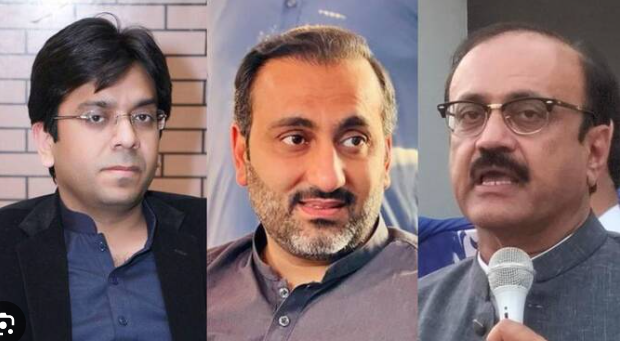Is this a big blow to PTI politics? Sargodha anti-terrorism court jails PTI Opposition Leader and 31 others for 10 years in May 9 riots case
In a significant development with potential political ramifications, the Anti-Terrorism Court (ATC) in Sargodha has sentenced Opposition Leader of Punjab Assembly, Malik Ahmad Khan Bhachar, along with 31 others including MNA Ahmad Chattha and former MNA Bilal Ejaz, to 10 years imprisonment each in the May 9 riots case linked to the violent protests that erupted following Imran Khan’s arrest in the Al-Qadir Trust case.
This ruling marks one of the heaviest legal blows yet to the Pakistan Tehreek-e-Insaf (PTI), raising questions about the party’s political future, particularly in Punjab, where Malik Ahmad Bhachar is a key figure.
The convicts were accused of violent protests, arson attacks, and destruction of military, civil, and private properties, particularly during unrest in Mianwali. The court’s verdict is already being labelled by PTI leaders as politically motivated.
PTI calls it political victimization
Malik Ahmad Bhachar announced he will challenge the ATC decision in Lahore High Court, terming the judgment “unconstitutional and politically driven.” He argued that the case was manipulated under the government’s influence, especially following the 26th Constitutional Amendment, which PTI claims has compromised judicial independence.
Bhachar stated,
“We expected such decisions in the politically charged May 9 cases. The legal protocols were not even fully met before sentencing.”
Meanwhile, PTI’s Chief Whip Rana Shehbaz called the ruling a “black day for democracy,” emphasizing that Bhachar has no connection to the Mianwali area where the alleged events occurred. He also hinted that the party would protest nationwide, viewing the verdict as part of a broader crackdown against PTI leadership.
Government defends the verdict
On the other side, Minister of State Barrister Aqeel Malik defended the ATC’s ruling, saying,
“No one is above the law. The verdict is constitutionally sound, and those who took the law into their own hands must face the consequences.”
He further added that the cases related to May 9 are “transparent as water” and that the world is witnessing “justice being served”.
Context: May 9 unrest and its fallout
The May 9, 2023 protests erupted after former PM Imran Khan’s arrest in the Al-Qadir Trust corruption case. The protests turned violent in major cities, including Lahore, Rawalpindi, and Faisalabad, with attacks on military installations like the Corps Commander House (Jinnah House) and the GHQ gate in Rawalpindi. The riots led to the deaths of at least 8 people and injuries to nearly 290 others.
In the aftermath, 1,900 people were arrested, and numerous cases, including terrorism charges, were registered against PTI leaders and supporters.
What does this mean for PTI?
The 10-year sentence to senior leaders like Bhachar and Chattha is not just a legal setback but a political one that could potentially derail PTI’s organizational structure in Punjab, Pakistan’s largest province. With leadership behind bars, the party faces challenges in mobilization, strategy, and election readiness.
However, PTI has vowed to challenge the verdicts in higher courts and maintain that these are attempts to weaken the opposition through judicial means.
Whether this is the beginning of the end for PTI’s political strength in Punjab or just another chapter in its ongoing confrontation with the establishment remains to be seen.
For now, the sentencing is undoubtedly one of the most significant legal and political blows to PTI since May 9.


